Educator Guides
-

The Scientists to Watch Lesson Plan Collection
Want to expose your students to various fields of scientific research and inspire them to pursue STEM careers? Introduce them to some rising stars of science! In this guide, based on Science News’ list of up-and-coming researchers, students can hear the stories of inspiring scientists and explore pathways to STEM careers. Learning Outcomes: STEM careers, fields of scientific research -

News Stories Give Spiders a Bum Rap
Are your students creeped out by spiders? They aren’t alone. In this guide, students will learn about how inaccurate news coverage has promoted common misconceptions about the largely harmless critters. Students can also discuss misinformation, thinking about where they’ve encountered it before, its impacts and ways to correct it. -

Why Spiraling Footballs Sometimes Miss the Mark
Engage your students in science using sports! In this guide, students can explore the physics of football throws and apply the scientific method to a sport of their choice. -

How Much Heat Can We Handle?
Summers are getting hotter. Use this guide to help students explore the science of heat and its effects on the body, and then apply what they learn through diagramming. -

Postcards From a New Space Telescope
Have you heard about the James Webb Space Telescope’s stunning first images of deep space? Use this guide to help students explore the science behind pictures of exploding stars, dancing galaxies, cosmic cliffs and more, and discuss how images can be thought of as data. -

Cellulose Helps Ice Cream Go Down Smooth
In this guide, students will learn about how food scientists are using chemistry to improve the texture of ice cream, discuss the science of ice cream on a molecular level and brainstorm testable scientific questions about favorite frozen desserts. -
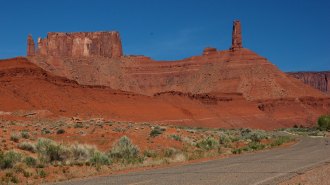
Climbers Help Scientists Vibe With Utah’s Rocks
In this guide, students will learn about a citizen science project that is helping scientists better understand the physical properties of rock formations. Students will then explore other citizen science projects that they could participate in based on their hobbies and interests. -
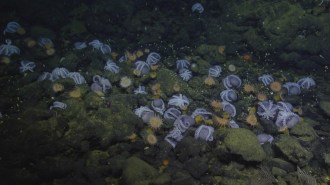
Deep-sea ‘Octomoms’ Seek the Heat
In this guide, students will answer questions about how scientists discovered that octopuses laying eggs in warm waters near geothermal springs are speeding up hatching. Students will then define rates and their units of measurement for biological and chemical processes and discuss factors that affect rates. -
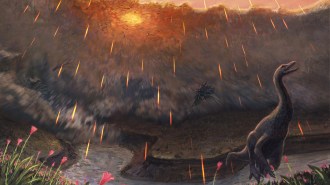
The Age of Dinosaurs May Have Ended in Springtime
In this guide, students will answer claim, evidence and reasoning questions about how scientists used the bones of ancient fish to determine during what season an asteroid wiped out nonavian dinosaurs. They will then explore the physical properties of human bones and how bones offer evidence to support scientific claims. -
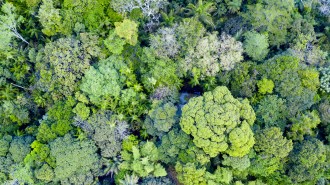
Earth May Be Hiding Thousands of Tree Species
In this guide, students will learn about scientists’ efforts to estimate how many tree species Earth has, analyze a related data visualization and discuss the implications the research has for conservation. -
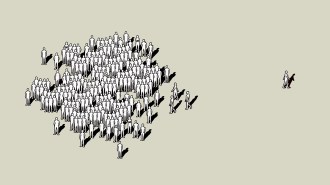
- Educator Guide:Educator Guide
- Topic:Science & Society
- Category:Data Analysis
- Category:Research & Design
Look to the Outliers
In this guide, students will learn about outliers and why some social scientists study them in an effort to improve people’s lives. -
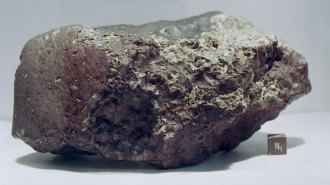
Meteorite’s Organics Aren’t Signs of Life
In this guide, students will learn about the origin of organic material found inside a meteorite from Mars and discuss how new evidence can be used to reevaluate scientific claims.